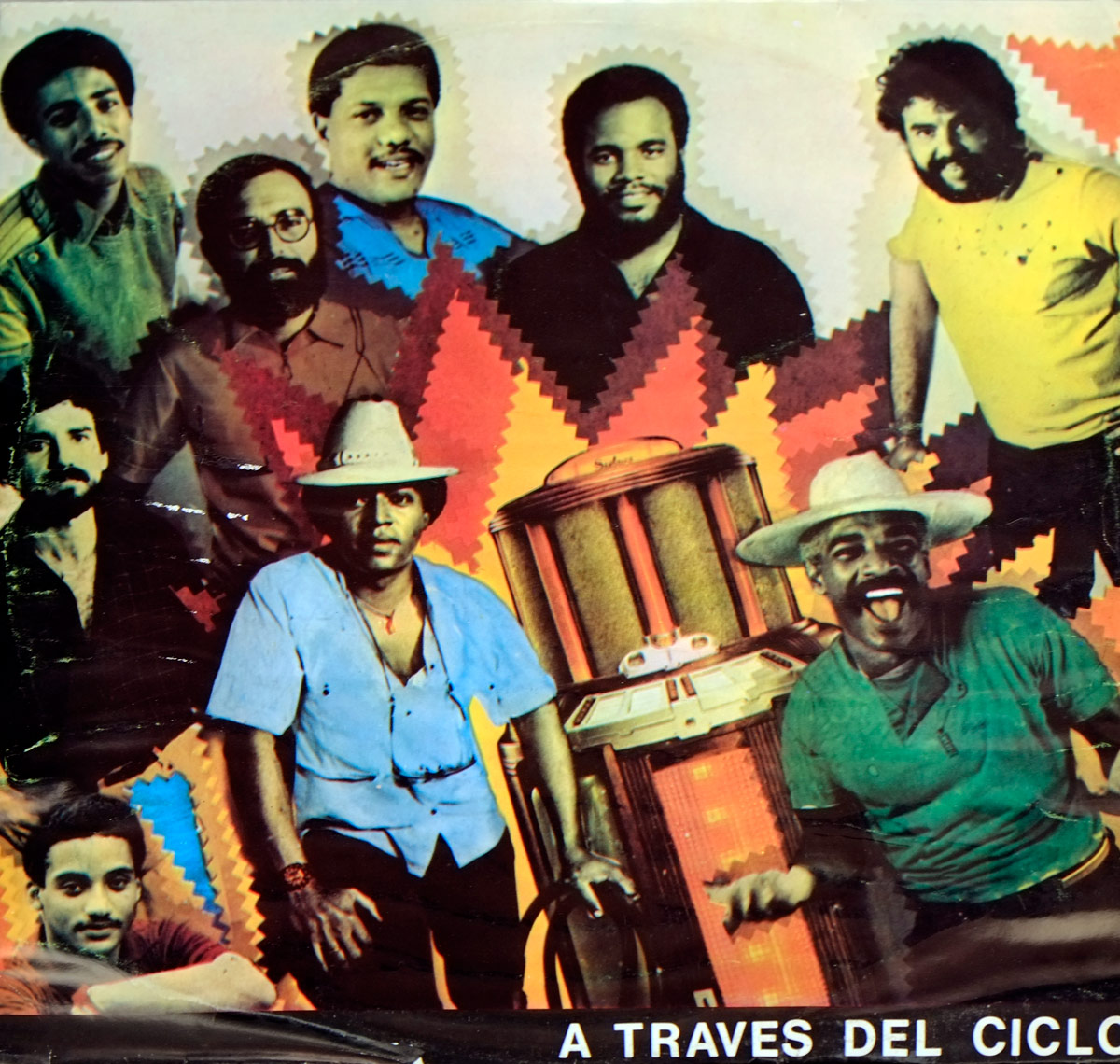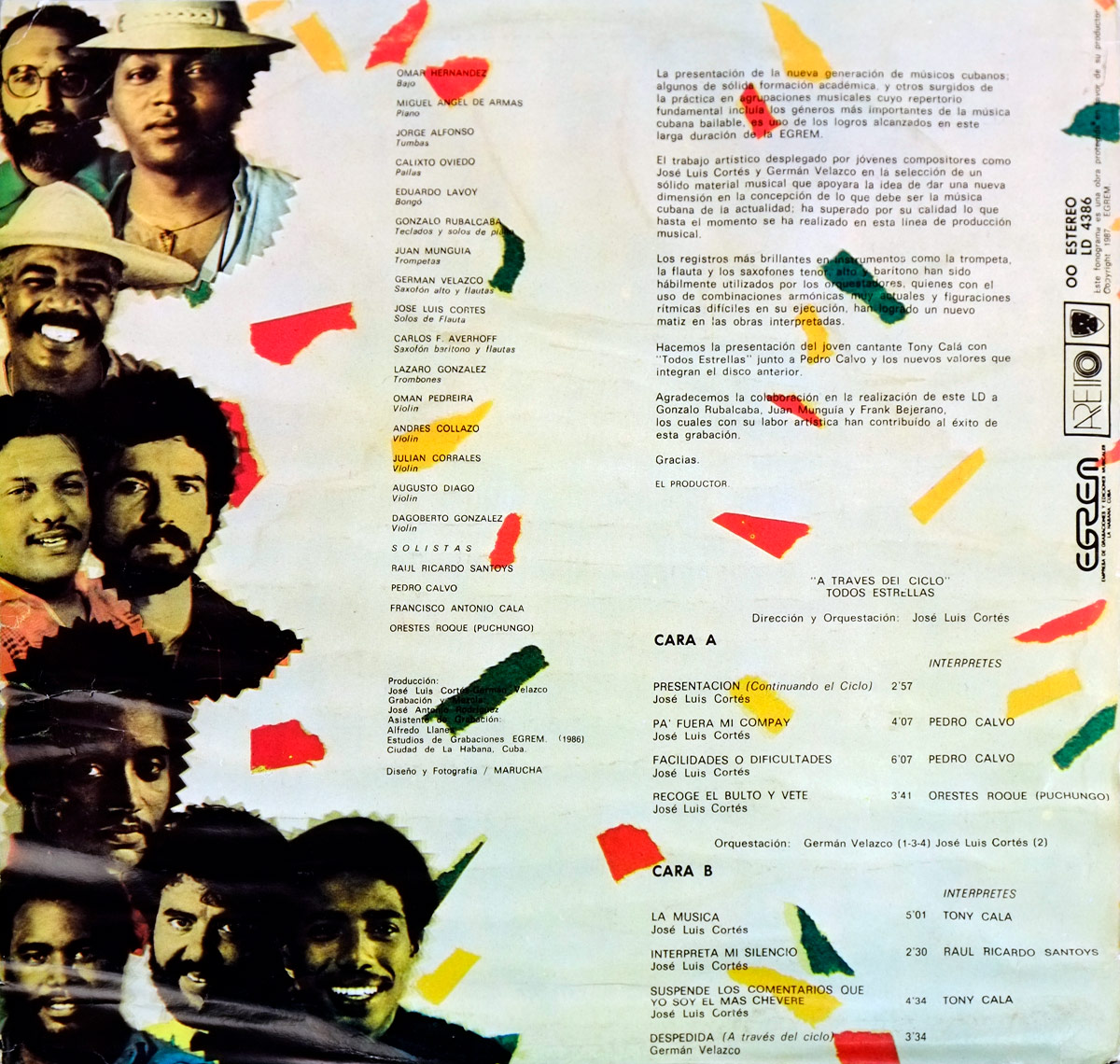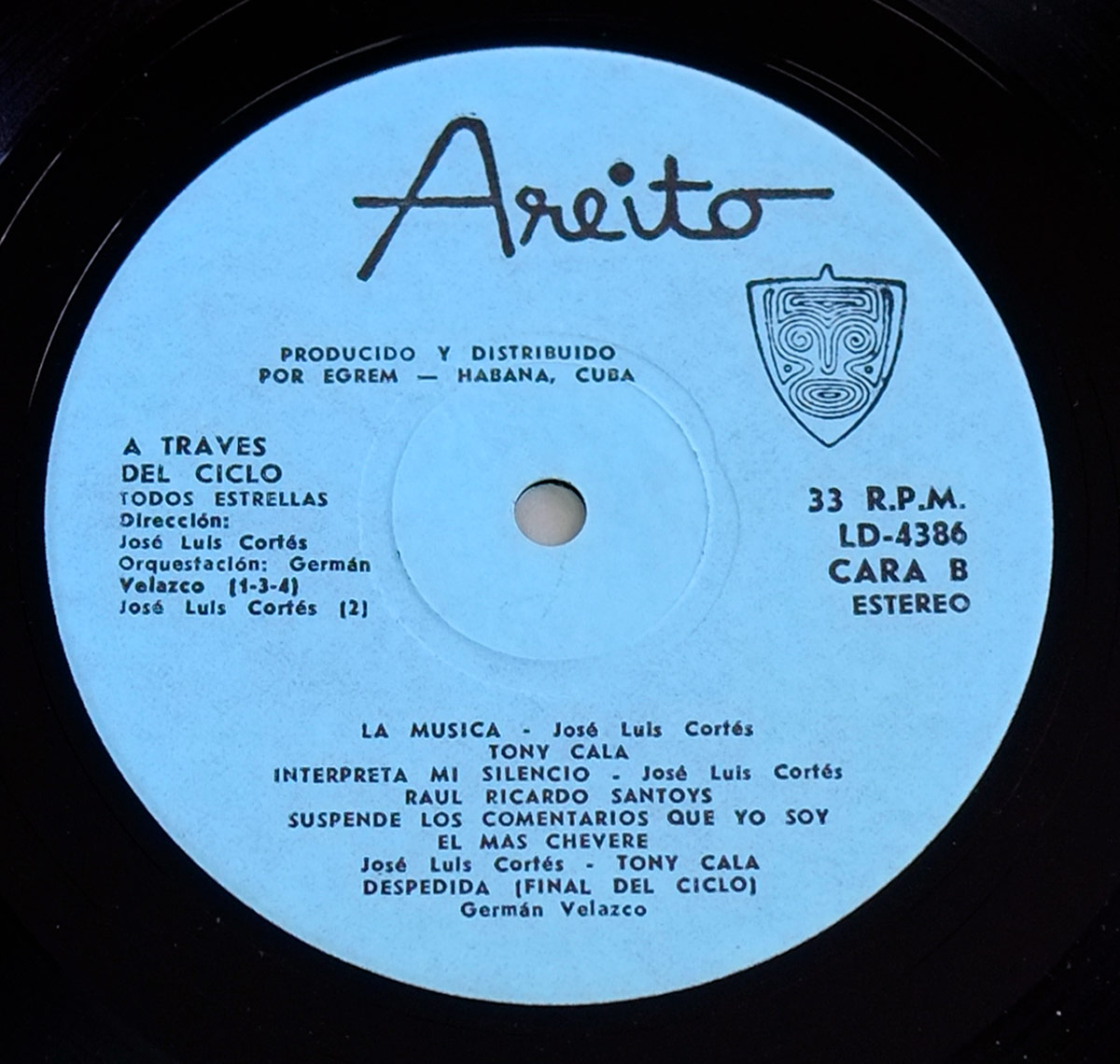The 1980s was a transformative decade for Cuban music, witnessing a bold evolution of its traditional sounds. It was an era where Salsa Cubana took on new energy, infused with influences from Latin jazz, timba, and the fiery rhythms of Afro-Cuban traditions. Amidst this wave of musical innovation emerged Todos Estrellas - A TravŽs del Ciclo, a landmark album that showcased the virtuosity of a new generation of Cuban musicians, blending masterful orchestration, powerful arrangements, and electrifying solos.
Produced by JosŽ Luis CortŽs and Germ‡n Velazco, this album wasnÕt just another Salsa releaseÑit was an exploration of Cuban musical identity, pushing boundaries while staying deeply rooted in its cultural legacy. Released in 1986 by Areito (EGREM), CubaÕs most prestigious record label, this LP captured the raw energy of HavanaÕs vibrant music scene and remains a testament to the islandÕs enduring sonic brilliance.
Musical Exploration: Between Salsa and Latin Jazz
At its core, A TravŽs del Ciclo is a celebration of rhythm and melody, where traditional Cuban dance forms meet the sophisticated harmonies of jazz. Unlike the more commercial Salsa of Puerto Rico or New York at the time, this album dives into the complexity of Afro-Cuban rhythms, dynamic horn arrangements, and daring percussion patterns that challenge even the most seasoned dancers.
The musicianship on this record is second to none. The tracks ÒPresentaci—n (Continuando el Ciclo)Ó and ÒDespedida (A TravŽs del Ciclo)Ó, orchestrated by Germ‡n Velazco, serve as thematic bookends that create a conceptual journey through time. Meanwhile, Pedro Calvo delivers raw and passionate vocals in ÒPaÕ Fuera Mi CompayÓ, a fiery declaration of Cuban resilience, while Tony Cal‡ brings a soulful, almost jazz-like phrasing to ÒLa MœsicaÓ, a track that pays homage to the spirit of Cuban sound.
Instrumentation plays a pivotal role in shaping the albumÕs distinct identity. The brilliant brass section (Juan Mungu’a on trumpet, Carlos Averhoff on baritone sax) injects a punchy, big-band energy, while the percussionists (Jorge Alfonso on congas, Calixto Oviedo on timbales) drive the music forward with relentless momentum. The fusion of traditional flute solos (by JosŽ Luis CortŽs) and modern jazz harmonies makes this album a unique blend of the old and the new.
The Production Team & Recording Studio: EGREMÕs Role in Cuban Music
Recorded at EGREM Studios in Havana, this album benefits from the expertise of some of CubaÕs most accomplished sound engineersÑJosŽ Antonio Rodr’guez and Alfredo LlanesÑwho managed to capture the full depth of each instrument despite the limitations of recording technology at the time. EGREM was responsible for producing some of CubaÕs most iconic records, and A TravŽs del Ciclo was no exception.
The album cover design, conceptualized by Marucha, visually represents the vibrant and evolving nature of Cuban music. The use of colorful abstract shapes and bold typography hints at the recordÕs experimental yet deeply rooted sound.
Historical Context: A Bold Statement Amidst Changing Times
The mid-1980s was a critical period for Cuban musicians. With the U.S. embargo tightening and international exposure becoming increasingly difficult, local artists had to find creative ways to push their music forward. Unlike many salsa records produced in the U.S. or Puerto Rico, A TravŽs del Ciclo was recorded entirely in Cuba, under a socialist system where state-run labels like Areito dictated much of what could or couldnÕt be released.
Despite these challenges, the album thrived, making waves in Latin America and solidifying CubaÕs reputation as the cradle of Afro-Caribbean music. The musicians involved would go on to become legends in their own rightÑJosŽ Luis CortŽs would later pioneer Timba music, and Gonzalo Rubalcaba (piano) would gain international fame as one of Latin jazzÕs greatest pianists.
Controversies & Legacy
Like many revolutionary Cuban records, A TravŽs del Ciclo didnÕt escape controversy. Some traditionalists criticized the jazz influence as being too complex for a dance album, while others viewed its fusion elements as a necessary step in the evolution of Salsa Cubana. Regardless of the debate, the record remains a classic, studied by musicians and admired by collectors worldwide.
Today, the legacy of Todos Estrellas - A TravŽs del Ciclo lives on through the musicians it helped launch, the new genres it inspired, and the continuous admiration from salsa dancers, jazz lovers, and Cuban music aficionados alike. Whether youÕre listening to it in Havana, Miami, or New York, this album is a timeless masterpiece that captures the soul of CubaÕs rich musical heritage.



